Tunisia grapples with COVID-19
-
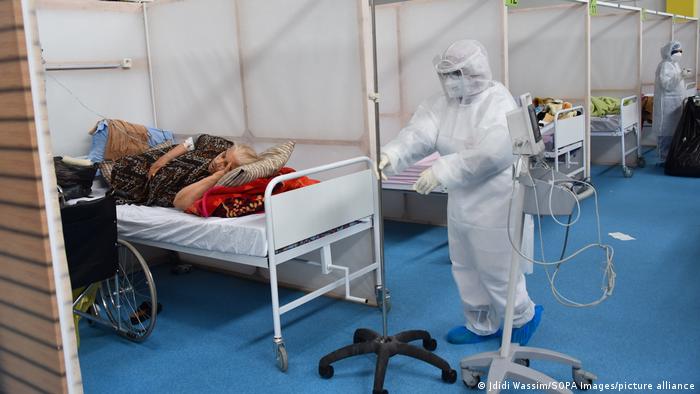
Infections on the rise: in late June, between 3,500 and 4,000 new infections were reported in Tunisia every day. Former Prime Minister Hichem Mechichi also contracted the virus in a country with little testing and where many hospitals are overwhelmed by the many COVID-19 patients. -
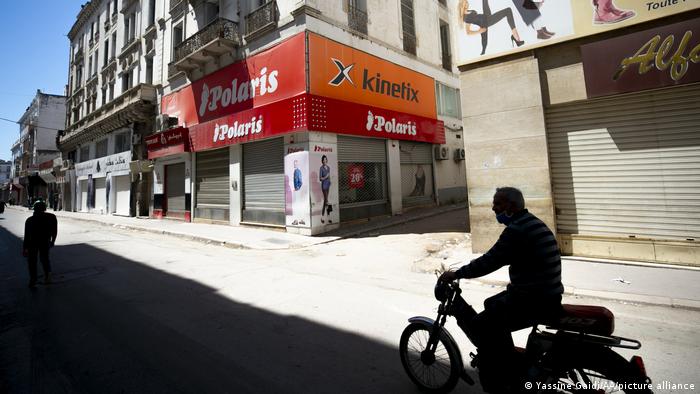
Curfews and lockdowns: A night-time curfew has been in place nationwide since October 2020. Depending on the incidence rate, the government has also imposed lockdowns for cities and regions, sealing them off from the outside world, like in the north-eastern city of Manouba (pictured here). Beja, Silyana, Zaghouan and Kairouan are reporting the highest incidence rates in the country. -
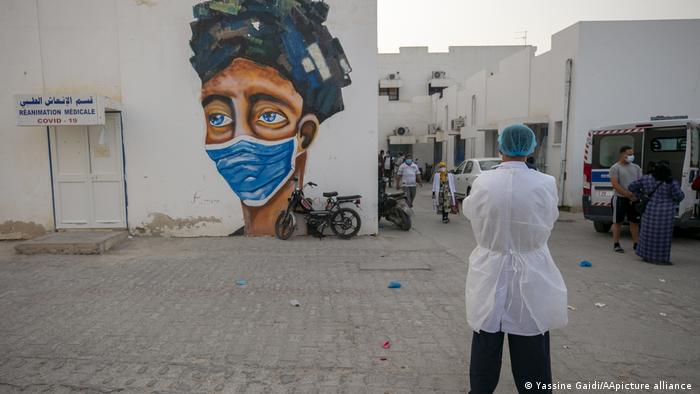
Lockdown in Kairouan: Kairouan is located about 150 kilometres south-west of the capital, Tunis. With well over 400 infections per 100,000 inhabitants, the city of about 120,000 inhabitants had one of the country's highest infection rates at the end of June. The square in front of the mosque is normally crowded and bustling with activity. But Kairouan is currently sealed off and looks more like a ghost town. -
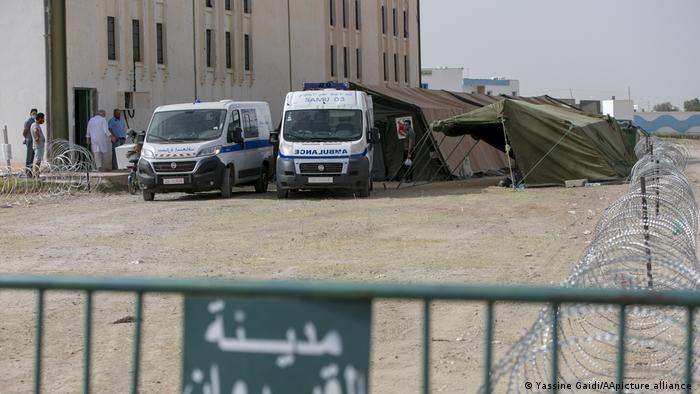
Ambulances everywhere: Only a few street vendors and stores selling necessary goods remain open. Ambulances are omnipresent, transporting COVID-19 patients to various hospitals in Kairouan. -
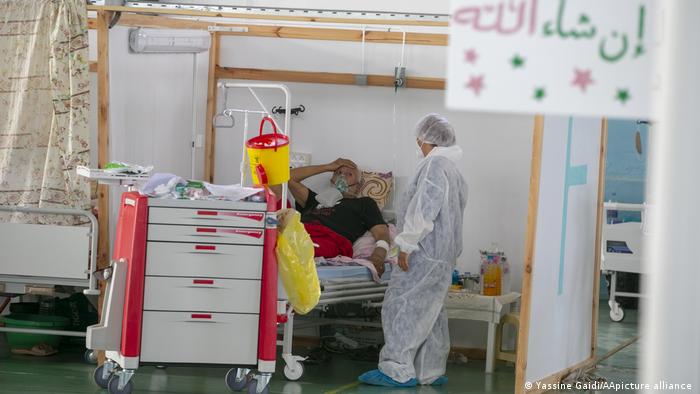
Makeshift COVID-19 wards: Kairouan has grappled with high infection levels for weeks. The hospitals in the city have been overwhelmed, and special COVID-19 wards were not readily available everywhere. In the meantime, such units have been set up to make sure coronavirus patients are kept far away from regular patients. -
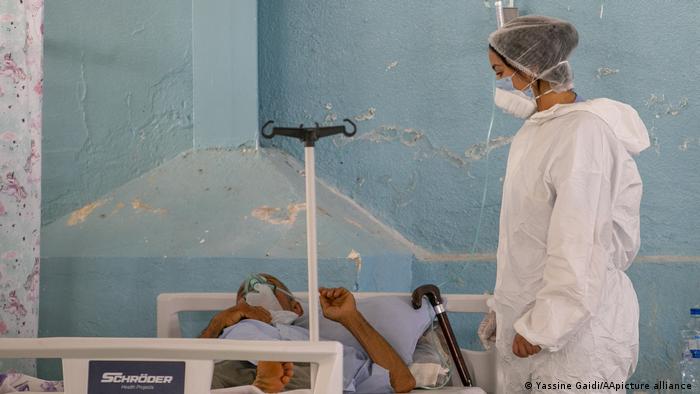
Shortage of staff: Doctors and members of the already scarce nursing staff have also become infected with the virus. Some patients have to be supplied with oxygen until a hospital bed can be found for them in another city. -
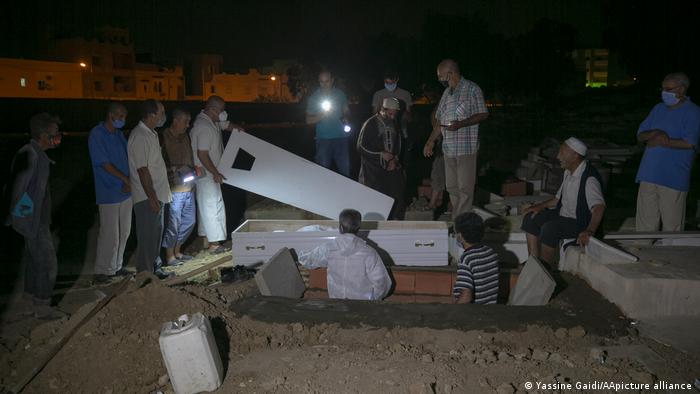
Death rate up: At the end of June, 8 to 10 people died of COVID-19 every day in Kairouan. According to official figures, almost 15,000 people have died in Tunisia since the beginning of the pandemic. -

Delta variant spreads: Doctors and nurses are working round the clock. The Health Ministry, which is urging the population to comply with coronavirus measures, said that by the end of June, 18 people had contracted the more contagious COVID-19 delta variant. -
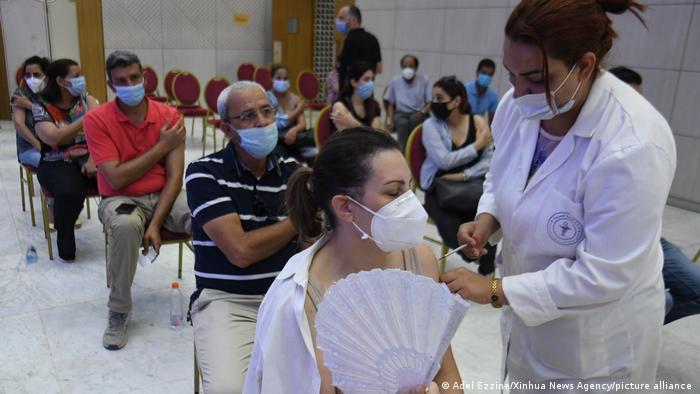
Slow vaccination campaign: The vaccination campaign in Tunisia is making slow progress. By the end of June, fewer than 1.8 million had been vaccinated in Tunisia, which has a population of approximately 11.5 million; only about 500,000 of them had received full vaccination protection, according to the Tunisian Health Ministry. It looks doubtful, however, that the country will manage to vaccinate half the population this year as planned.
https://qantara.stage.universum.com/en/node/10696
Link
To all image galleries